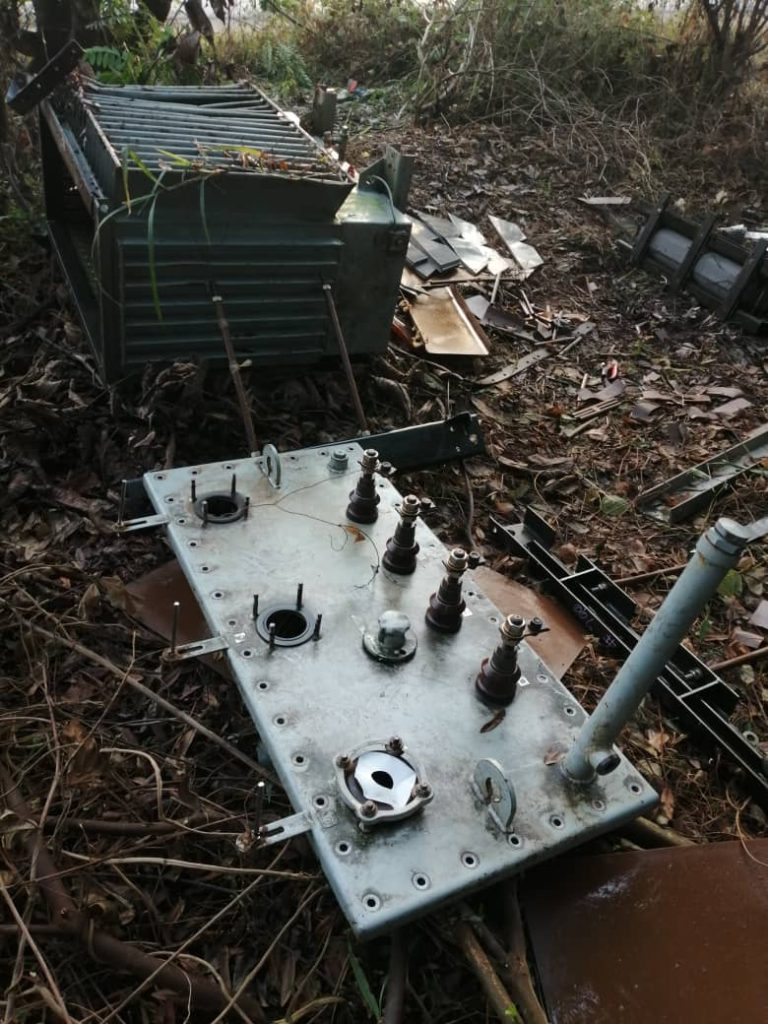The Electricity Company of Ghana (ECG) has experienced a series of targeted transformer vandalizations in Bogoso, a town within the Western Region of Ghana. This act of sabotage has not only disrupted the power supply to various parts of the community but also caused significant financial setbacks for the ECG and widespread inconvenience for its customers. The company’s management, deeply concerned by these recurring incidents, has appealed to community leaders, local authorities, and residents to be vigilant and report any suspicious activities near ECG installations. They underscored the importance of community ownership and protection of these vital assets, emphasizing that such acts of vandalism ultimately harm the very communities that rely on them.
The damage inflicted on the transformers has led to power outages, impacting both residential and commercial activities in the Bogoso area. The financial implications for the ECG include the cost of repairing or replacing the damaged transformers, the disruption to revenue streams due to the power outages, and the allocation of resources to investigate and prevent future incidents. This drains resources that could otherwise be used to improve the power grid and enhance service delivery. The ECG’s Western Regional General Manager, Mr. Emmanuel Justice Ofori, condemned the vandalism, highlighting the negative impact on both the company and the affected communities. He stressed that these essential electrical installations are communal assets, provided for the benefit of all, and their destruction is a detriment to everyone.
The vandalism targeted three transformers in different locations within the Bogoso District. Two of these transformers, a 50kVA and a 200kVA unit, were part of the electrical circuit supplying power to crucial community infrastructure, including the Community Water facility at Bepoh Bridge and residential bungalows at Anlonkwanta. The disruption of power to these essential services underscores the far-reaching consequences of the vandalism. The third transformer, a 100kVA unit dedicated to serving the Samahu area, was also targeted but was not actively connected to the circuit at the time of the incident. The local assembly members of the affected communities were the first to discover the vandalism and promptly reported it to the ECG office, demonstrating community involvement in protecting their resources.
The local authorities and the ECG have taken swift action in response to the transformer vandalism. The incident has been officially reported to the police, and a thorough investigation is underway to identify the perpetrators and bring them to justice. This coordinated effort between the ECG and law enforcement demonstrates a commitment to addressing these criminal acts and holding those responsible accountable. The ECG, through its District Manager for Bogoso, Mr. Benjamin Dodoo, confirmed the reporting of the incidents to the police. The hope is that a successful investigation will not only lead to the apprehension of the culprits but also deter future acts of vandalism.
The ECG emphasizes the critical role of community vigilance in safeguarding electrical installations and ensuring a stable power supply. They urge all residents to treat these assets as communal property and report any suspicious activities observed around transformers or other ECG equipment. This proactive approach to security relies on the collective responsibility of the community to protect its resources and contribute to a safer and more reliable power infrastructure. The ECG views community partnership as crucial in deterring vandalism and ensuring the continuous provision of essential electricity services.
The incident in Bogoso serves as a stark reminder of the vulnerability of critical infrastructure to vandalism and the wide-ranging consequences that such acts can have. The concerted effort by the ECG, local authorities, and community members to address this issue underscores the importance of collaboration and vigilance in protecting shared resources. The hope is that this collaborative approach will not only lead to the apprehension of the culprits but also foster a greater sense of community ownership and responsibility for the power infrastructure that serves them. Ultimately, the goal is to prevent future incidents and ensure a reliable and sustainable power supply for the benefit of all.














